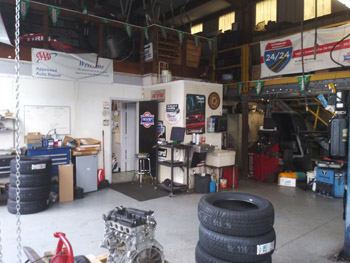All Categories
Featured
A well-kept engine is the vital to your automobile's long life and optimal efficiency. Regular engine tune-ups not only enhance fuel performance however additionally decrease the probability of unexpected malfunctions. Whether you're a cars and truck lover or someone who just desires to stay clear of expensive fixings, these engine tune-up ideas will maintain your automobile running like a dream.

- Change the Spark Plugs. The spark plugs spark the air-fuel mix in your engine, and their efficiency directly impacts engine efficiency. Gradually, trigger plugs can wear, leading to misfires, lowered fuel economy, and slow-moving velocity.
Throughout a tune-up, evaluate and change ignition system if they show signs of wear, such as residue buildup, rust, or fractures. Depending on your vehicle, ignition system might need to be changed every 30,000 to 100,000 miles.
- Examine the Ignition System. Your car's ignition system, which consists of the ignition coils, supplier, and cables (if suitable), is liable for delivering the spark that powers your engine. Damaged ignition components can cause starting problems and rough engine procedure.
Examine for damaged or put on components and replace them during your tune-up. Making sure a healthy ignition system will boost engine dependability and performance.
- Tidy or Change the Air Filter. A tidy air filter allows your engine to "take a breath" appropriately by making sure a stable circulation of clean air. In time, dirt and particles can block the filter, minimizing air flow and affecting fuel performance.
Evaluate the air filter during a tune-up and replace it if it's dirty. For drivers in dirty or contaminated locations, air filters might require to be changed more often.
- Check and Clean the Gas System. The gas system, consisting of the fuel injectors, fuel pump, and gas lines, can build up down payments with time, minimizing gas distribution and engine efficiency. Use a gas injector cleaner or have your system professionally cleaned throughout a tune-up to recover correct performance.
On a regular basis maintaining your gas system makes certain better combustion and maximizes your engine's efficiency.

- Modification the Engine Oil and Oil Filter. Engine oil is crucial for lubrication, cooling, and minimizing rubbing between relocating parts. In time, oil degrades and builds up debris, losing its efficiency.
During a tune-up, change the engine oil and oil filter. Following the producer's suggestions for oil type and change periods is critical to maintaining your engine in ideal condition.
- Evaluate the Belts and Hoses. The belts and tubes in your engine area play critical functions in powering components like the generator, water pump, and air conditioning system. Deterioration gradually can bring about cracks, fraying, or leakages.
Check the problem of belts and tubes during your tune-up and replace any that show indicators of damages. Proactively addressing these problems can protect against pricey repair work and unexpected breakdowns.
- Test the Battery and Electric System. A weak or stopping working battery can leave you stranded. During your tune-up, examination the battery's voltage, evaluate the terminals for deterioration, and ensure the connections are tight.
In addition, have the generator and starter checked to guarantee they're working properly. Addressing electrical system concerns early can save you from inconvenient surprises.
- Examine the Air Conditioning System. The air conditioning system avoids your engine from overheating, which can cause extreme damages. During a tune-up, check the radiator, hose pipes, and water pump for leakages or use.
Flush and replace the coolant if it's dirty or has surpassed its recommended service life. Proper air conditioning system maintenance helps your engine run within its ideal temperature level array.
- Address Dashboard Warning Lights. Modern vehicles are outfitted with innovative diagnostic systems that brighten alerting lights when concerns arise. If your dashboard presents any type of advising lights, such as the check engine light, resolve them during the tune-up.
An expert auto mechanic can use diagnostic tools to recognize and take care of the problem, preventing little problems from rising.
- Keep Your Engine Clean. A tidy engine runs cooler and is much easier to check for prospective problems. Eliminate dirt, oil, and crud from your engine bay during a tune-up. Make use of a degreaser and a gentle brush for cleansing, and stay clear of splashing water directly on electric parts.
Final Thought: Tune-Ups Are the Key to Engine Longevity. Routine engine tune-ups are an investment in your vehicle's wellness, efficiency, and effectiveness. Whether you're dealing with the tune-up yourself or taking your auto to a trusted mechanic, complying with these tips will certainly maintain your engine running at its ideal and help you prevent unexpected repair work.
Latest Posts
The Relevance of Expert Seamless Gutter Installment and Maintenance
The Toughness and Design of Ornamental Iron Fencing
Advanced Eye Center South - Eye Care Center: Expert Eye Care Specialists in Dothan.
More
Latest Posts
The Relevance of Expert Seamless Gutter Installment and Maintenance
The Toughness and Design of Ornamental Iron Fencing
Advanced Eye Center South - Eye Care Center: Expert Eye Care Specialists in Dothan.